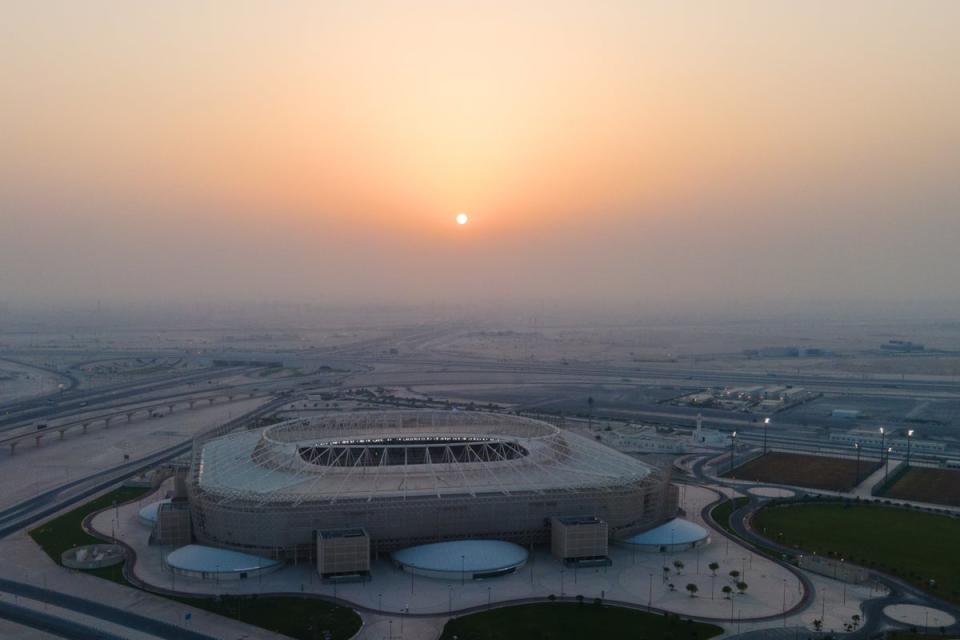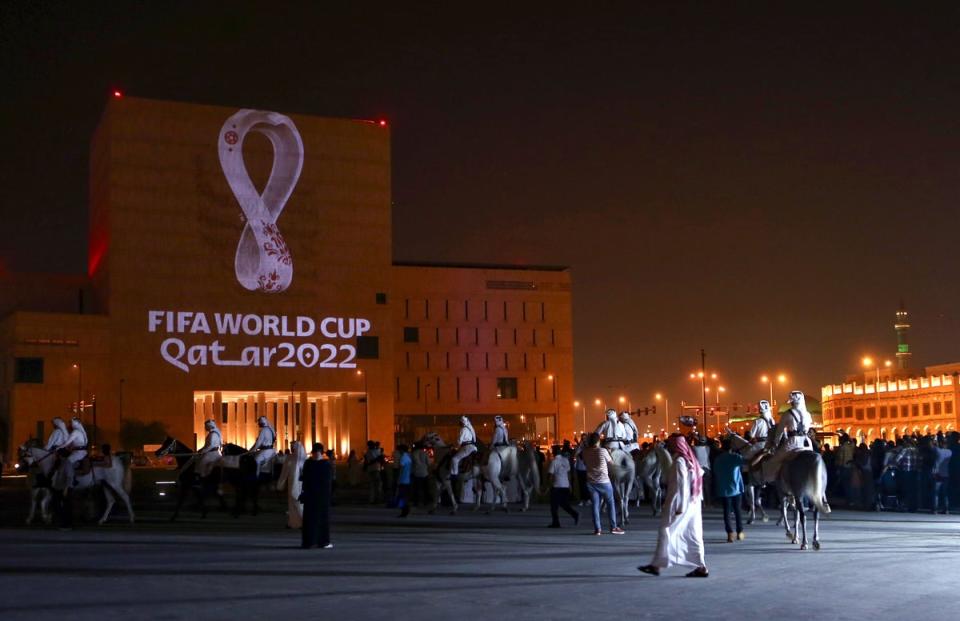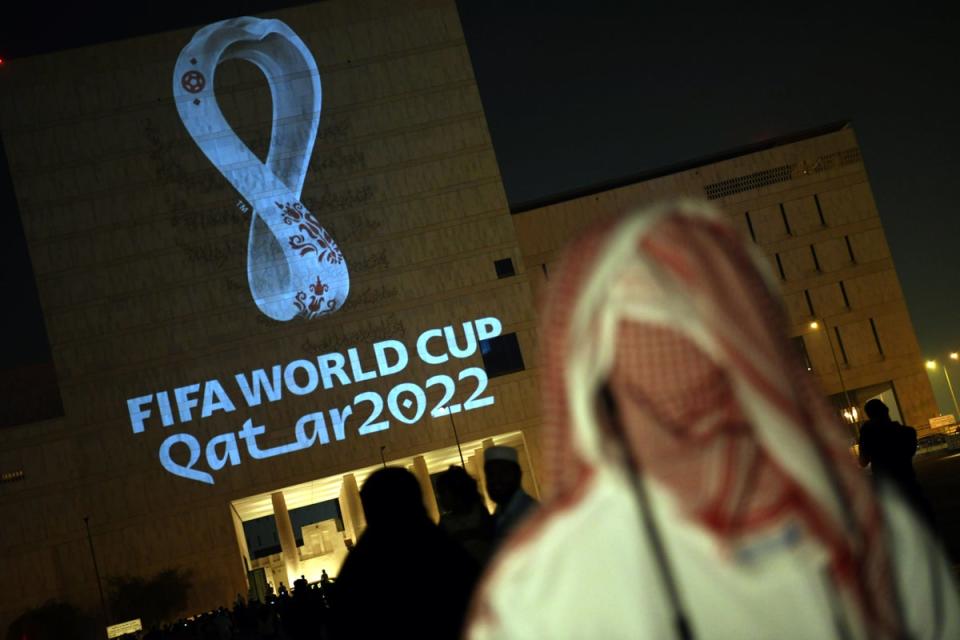No World Cup participants yet endorsing PayUpFifa campaign to compensate migrant workers
With less than 100 days before the World Cup, none of the 31 qualified federations have yet endorsed the PayUpFifa campaign, leading to criticism from human rights groups that the game is shirking its “responsibility” as part of mere “checkbox exercises”. The initiative is a collective call by such bodies for Fifa to match the £360m Qatar 2022 prize money with compensation to migrant workers who have suffered human rights abuses in the preparations for the tournament.
To add to that, just over a third of qualified nations have conducted proper consultations with human rights groups about this World Cup, and only four of those have allowed such bodies to directly speak to players.
The positions raise questions over just how seriously the game is taking such concerns ahead of one of the most controversial sporting events in history, despite so many platitudes, and amid a situation where migrant workers are still denied the most basic of rights.
While there is a general acceptance it would be unfair to demand players boycott a rare opportunity at a World Cup for decisions they had nothing to do with, the offset is a reasonable expectation they should use their considerable profile to provoke change. There is a growing feeling that is being wasted.
“Workers’ and their families can’t afford to wait while FAs waste more time trying to align their messaging,” Amnesty International say.

It speaks volumes, in the words of Fair Square’s Nick McGeehan, that it is now more than 4,000 days since Qatar was awarded the World Cup, with less than 100 days until its start, and “the labour system isn’t significantly better in practice for migrant workers”. While Amnesty and some other groups would recognise that progress has been made in terms of abolishing Kafala, the measure they are consequently seeking support on is implementation and remedy.
The Independent consequently sent a brief survey to all 31 qualified federations, excluding the hosts.
The questions were as follows:
1. Does the federation have human rights concerns in relation to its participation in Qatar 2022?
2. Has the federation spoken directly to independent human rights groups, such as Amnesty?
3. Has the federation brought in independent human rights groups to speak to its players and football staff about issues in Qatar?
4. Does the federation plan to support or comment on the #payupFifa campaign, created by all major workers and human rights bodies?
5. What work has been done by the federation on human rights concerns?
Only 14 federations acknowledged the email, but just eight of those offered proper responses to questions. They were Australia, Denmark, England, France, Germany, Netherlands, Portugal, Switzerland and Spain.
Of those, seven expressed direct concern over their human rights issues in Qatar, although it is separately known that Belgium, Croatia and USA have relayed their issues with the hosts elsewhere. Australia, Belgium, Denmark and Germany have meanwhile invited human rights groups including Amnesty to speak directly to their players. Others such as England, Netherlands, Portugal and Switzerland have had continued discussions with such bodies, but don’t yet want to prioritise one over another to speak to the squads. They have all distilled human rights briefings for their players.

For their part, the federations of England, Denmark, Germany, Netherlands, Portugal, Switzerland and Australia outlined their current positions in clear and nuanced detail. The general view among the European qualifiers, under guidance from Uefa and its ongoing working groups on Qatar, is that they want to come together as a collective statement that will have “global impact”.
That has left human rights groups frustrated given there is so little time left, with a lingering sense the federations are hiding behind the working groups rather than engaging meaningfully.
Isobel Archer of the Business and Human Rights Resource Centre says: “We recognise the efforts of Fifa, the World Cup organisers and ILO [International Labour Organisation] to engage with football associations on human rights ahead of November, but this tournament belongs to all stakeholders – especially the FAs – who must take individual responsibility for the impacts of their involvement.
“Human rights responsibilities are not a checkbox exercise, and they certainly shouldn’t be outsourced to others. FAs must take ownership over this process – engage fully with hotels and other service providers to set out their expectations on how workers should be treated, report transparently on risks and clearly commit to taking action to remediate rights violations if they do occur.”
Figures with both the federations and Uefa strongly reject such assessments and stress the “wheels are in motion” for a strong collective message. The explanation is they want to ensure that initiative is absolutely right, with genuine authority and not - in the words of one source - “just wearing a t-shirt”.
An increasing argument from activists is that it is an absurdity that officials are trying to find the correct words, when hundreds of thousands of workers have been denied the most basic rights.
“The message is clear,” Amnesty International add. “FAs around the world need to unequivocally call on FIFA and Qatar to urgently commit to a remediation programme, so that those who made this tournament possible are not forgotten.
“The important legal reforms Qatar has made recently can’t erase the many years of serious labour abuses endured by thousands of migrant workers when no actions were being taken to protect them.”
McGeehan concurs: “Whatever people say about progress on labour reforms, nobody credibly disputes that this World Cup has come at a huge cost in terms of serious abuses and many preventable deaths. But despite this having been extensively documented by the most credible rights groups in the world and despite the concerns raised by various groups of players, the associations that are going to profit massively from this tournament can’t even bring themselves to support calls to compensate the people who lost so much and suffered so much to make this tournament possible.”
Human rights workers see the complete lack of support for the PayUpFifa campaign as all the more wasteful and lamentably ironic because it was a rare moment when the various groups came for a clear and unified message, and that after some of the federations had told them that that was what they needed to do. It was felt this solved the problem of too many competing priorities, only to be met with silence.
The view among bodies like Amnesty and Fair Square is that compensation could actually redeem this World Cup to a certain extent, as it will be concrete positive effect in the lives of migrant workers.
Some federations such as Belgium, Denmark, Germany and Netherlands have at least expressed support for the sentiments of the campaign, without yet confirming their endorsement.
Spain was meanwhile one of three federations - along with France and Poland - to not directly reference Qatar in their responses. The association of the 2010 champions instead pointed to initiatives around the moving of the Spanish Super Cup to Saudi Arabia as proof of their commitment to human rights, despite the widespread criticism that decision generally received.

“As you know, the social programme of the RFEF is extensive and firm in its defence of human rights,” the response read. “Testament to this is the contract that calls for social measures to be carried out in Saudi Arabia, so our Super Cup can be taken there from Europe.” Among those were calls for a women’s league and that women could attend the matches.
Spain, France and Switzerland meanwhile similarly appealed to the idea of taking their lead from the ultimate organisers of the competition, in Fifa. That nevertheless raises another area of discussion.
The idealistic view is that Fifa would use their considerable leverage to demand change in Qatar, especially since the current hierarchy are keen to point out they inherited this World Cup from the old Sepp Blatter regime.
Instead, workers groups have observed an increasing alignment between Fifa and Qatar on certain issues. Human rights bodies meanwhile remain shocked at Fifa president Gianni Infantino’s claim to the European Parliament that there have only been three worker deaths in this construction of this World Cup’s stadiums.
A fair question is how the game can ever hope to affect any kind of change in Qatar, or “use the tournament for good” in the vaunted way they talk about, if the sport’s most senior figure betrays such a profound misunderstanding of the reality of the situation.
Current realities are also imposing on the build-up in other ways.
Qatar has invested billions in the state infrastructures of many qualifiers, from Senegal to Spain to France, impeding the potential for criticism. All of this comes amid a global energy crisis, which has made many politicians even less inclined to criticise one of the world’s primary exporters of oil. The belief among senior football figures is that this greatly diluted public debate about the tournament, which would usually be building up by now.
It has been noted how the Qataris have become “increasingly bullish” in the last year. That could be seen in some of the statements around the April draw, not least the comment from Nasser Al Khater - the chief executive of Qatar 2022 - that Gareth Southgate should “pick his words carefully”, after the England manager voiced concerns about migrant workers and gay people visiting the tournament.
The situation is all the more lamentable since some players are genuinely interested in doing something. After one federation briefing, a number stayed behind afterwards to ask for more information.
Some associations have tried to insulate their squads from this, out of a belief they should not face questions about major issues that were not their decisions.
It’s just that the players will be at the centre of all this. They’ll be the ones facing the responsibility.

